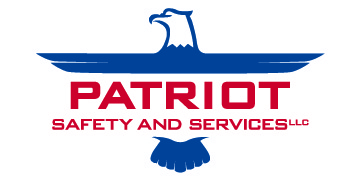Professional DOT Drug Testing is a federally mandated requirement designed to ensure that employees in safety-sensitive transportation roles are free from drug use. From truck drivers and pilots to rail operators and pipeline technicians, Professional DOT Drug Testing plays a crucial role in safeguarding lives, protecting the public, and maintaining employer accountability.
While the regulatory purpose of Professional DOT Drug Testing is well-known, its deeper value extends into legal protection, insurance compliance, and corporate risk management. For companies in transportation and logistics, it is not just a compliance requirement — it is a legal and operational safeguard that strengthens every layer of workforce and business integrity.
Why It Is a Legal Shield
Employers in DOT-regulated industries operate under intense legal scrutiny. A single compliance failure can lead to fines, lawsuits, or even loss of operating authority. Professional DOT Drug Testing provides a vital legal defense mechanism by documenting that an employer took all reasonable steps to ensure a safe, drug-free workplace.
When incidents occur, employers who maintain thorough testing records can demonstrate due diligence. Courts and regulators view these records as proof that an organization followed federal regulations and acted responsibly. Documentation from DOT drug testing provides legally defensible evidence that protects businesses against claims of negligence or unsafe practices.
Without Professional DOT Drug Testing, employers leave themselves vulnerable to legal challenges. Implementing a strong, well-documented program protects both the company and its employees.
The Legal Framework
DOT drug testing operates under 49 CFR Part 40 and is enforced by multiple agencies, including the Federal Motor Carrier Safety Administration (FMCSA), Federal Aviation Administration (FAA), Federal Railroad Administration (FRA), Federal Transit Administration (FTA), Pipeline and Hazardous Materials Safety Administration (PHMSA), and the United States Coast Guard (USCG).
These agencies require Professional DOT Drug Testing under specific conditions such as pre-employment, random, post-accident, reasonable suspicion, and return-to-duty testing. Each type serves a critical purpose in verifying that employees remain fit for safety-sensitive duties.
Employers who fail to comply with these requirements face severe penalties. A compliant testing program ensures full adherence to federal law while establishing a foundation of legal defensibility that protects the business during audits or investigations.
Insurance Compliance
Insurance carriers carefully evaluate compliance programs when determining coverage terms and premiums. Companies that implement thorough DOT drug testing programs demonstrate proactive risk management, often resulting in lower premiums and better coverage options.
When an accident or claim occurs, insurers require documentation of compliance. Employers with comprehensive records can provide verifiable proof that their workforce met federal safety requirements. This documentation not only speeds up the claims process but also strengthens an employer’s defense in insurance disputes.
By maintaining audit-ready records, employers establish credibility with insurers. A strong Professional DOT Drug Testing program proves that a company values accountability and compliance, which translates directly to financial protection and reduced liability.
Technology and Process Efficiency
Technology has transformed how Professional DOT Drug Testing is conducted and managed. Employers now use digital compliance platforms to automate random pool selections, schedule tests, and securely store results.
Electronic Custody and Control Forms (eCCFs) reduce paperwork errors, while cloud-based recordkeeping ensures that documentation is available during audits. Automated notifications prevent missed testing deadlines, keeping programs continuously compliant.
By integrating technology into Professional DOT Drug Testing programs, employers reduce administrative burdens and maintain consistent compliance across multiple locations. Digital documentation also ensures transparency and accessibility — key factors in building defensible compliance records.
👉 Learn more: OSHA – Safety and Health Management Guidelines.
Risk Management and Prevention
Every employer in a DOT-regulated industry faces risks related to safety, liability, and reputation. Professional DOT Drug Testing mitigates those risks by ensuring that every employee performing safety-sensitive duties is physically and mentally fit to perform their job.
A single impaired employee can cause catastrophic accidents, lawsuits, and regulatory violations. Regular testing identifies potential risks early, preventing incidents before they occur. Employers who conduct consistent DOT drug testing protect not only their workforce but also their brand reputation and long-term operational continuity.
Risk management is about prevention, and Professional DOT Drug Testing is one of the most powerful preventive measures available to employers today.
Multi-State Operations Consistency
Many transportation and logistics companies operate across multiple states, each with unique regulatory environments. A consistent DOT drug testing program ensures that every employee, no matter their location, meets the same federal standards.
Nationwide collection site networks and mobile testing options allow employers to perform Professional DOT Drug Testing in remote areas without compromising accuracy or compliance. This level of standardization eliminates inconsistencies and supports audit readiness, regardless of where employees are based.
For multi-state and remote employers, maintaining a centralized testing system is critical for both compliance and efficiency.
Brand Protection and Public Trust
Public trust and reputation are central to success in the transportation industry. Clients, regulators, and the public expect employers to prioritize safety and accountability. Professional DOT Drug Testing demonstrates that commitment in a visible and measurable way.
A strong policy reassures partners and customers that the company operates responsibly and within the law. In the event of an accident or audit, companies with well-documented testing programs preserve credibility and maintain confidence among stakeholders.
In today’s competitive market, DOT drug testing is not only about safety — it’s about protecting the integrity of the company’s brand.
Workforce Accountability
Accountability begins with hiring and continues throughout employment. Professional DOT Drug Testing reinforces this accountability by applying the same standard to every employee in safety-sensitive positions.
Employees understand that compliance is mandatory and monitored consistently, creating a fair and transparent culture. This consistency improves morale, deters substance abuse, and builds trust among employees and leadership.
A well-structured program is not simply about regulation — it is a framework for establishing fairness and reliability across the organization.
Customizing Testing for Industry Needs
Although DOT drug testing is standardized by federal law, employers can tailor implementation to align with their specific industry requirements.
Aviation employers may focus on pre-employment and random testing for flight crews, while trucking companies prioritize post-accident testing and record management. Pipeline and hazardous material operators often emphasize 24/7 testing availability for emergency situations.
By customizing scheduling, communication, and reporting structures, employers create Professional DOT Drug Testing programs that fit their operational demands without compromising compliance.
Legal Documentation and Audit Readiness
Accurate documentation is the cornerstone of a defensible compliance program. Employers must maintain records for each type of Professional DOT Drug Testing, including Custody and Control Forms, test results, training certifications, and random selection data.
These records provide the legal proof required during audits, insurance reviews, and litigation. Employers who cannot produce these records risk noncompliance penalties and reputational harm.
Partnering with a Professional Provider like Patriot Safety and Services ensures that every aspect of DOT drug testing is recorded, stored securely, and ready for inspection.
Role of a Professional Provider
Managing DOT drug testing internally can be complex and time-consuming. Employers rely on Patriot Safety and Services to handle every detail, from scheduling and collection to result reporting and compliance tracking.
Patriot Safety and Services ensures all testing follows federal guidelines, using certified labs, trained collectors, and Medical Review Officer verification. Employers gain access to digital compliance tools and 24/7 testing availability, ensuring every requirement is met efficiently.
By partnering with a professional provider, employers simplify compliance, reduce liability, and maintain total confidence in their legal defensibility.
👉 Contact Patriot Safety and Services.
Future Trends
The future of DOT drug testing will continue to evolve with technology and regulation. Key trends include wider adoption of oral fluid testing, expansion of digital compliance monitoring, and integration of artificial intelligence for risk prediction.
Employers who stay ahead of these trends will maintain stronger compliance records and safer workplaces. DOT drug testing will remain a critical element of federal safety policy, serving as both a legal protection and a strategic advantage for forward-thinking businesses.
Long-Term Business Strategy
Professional DOT Drug Testing is more than a regulatory requirement — it is a comprehensive strategy for legal defense, insurance compliance, and corporate risk management.
By partnering with experts like Patriot Safety and Services, businesses can ensure that every aspect of DOT testing — from collection to documentation — is accurate, compliant, and defensible.
As safety regulations evolve and risk environments grow more complex, Professional DOT Drug Testing will continue to stand as the foundation of trust, accountability, and operational excellence.






